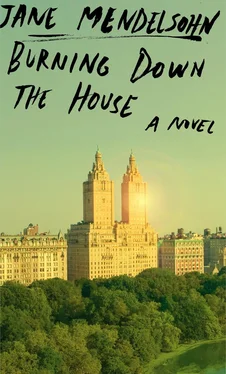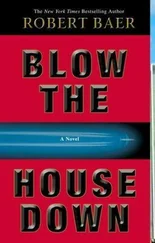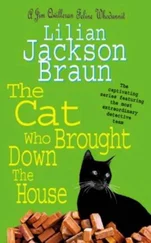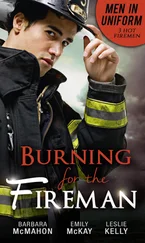—
The shame she feels when she gets home is a dark void, and she has the sensation that a chain reaction of decay is being worked out through her, a hideous visitation, a possession by a not-living version of herself. Her hair falls in her face, her head downcast. She tries to sneak in without anyone noticing her and leave no footprint, glide conspiratorially to her room. People should know this, she thinks, that this can happen, this horror. That someone can be alive and die. Being alive is not really a matter of breathing or pumping blood or even thinking. It is an unknown. There is so much that is unknown. You can be alive and exist in a void and therefore not really be alive. That’s when she sees Neva, walking back to her room. From where? Roman’s room? Felix’s? Steve’s study? She’s fully clothed although it’s very late, really the early hours of the morning. In her simple clothes and stoic bearing she conveys some sublime combination of cerebral, womanly, and strong. She looks Poppy directly in the eyes. She does not look away.
—
Neva stood like a sculpture, rigorous, pure, steely, confident, yet also fragile, full of secrets, slightly surreal. She did not need to do anything but look at Poppy, and Poppy fell wordlessly into her arms. Poppy cried. They did not talk. Neva just held Poppy while Poppy cried and then Neva helped her get into her bed. Neva did not suggest that Poppy wash her face or change her clothes. Neva did not ask Poppy to explain herself. She just guided her, like a spirit made of nothing but awareness, a beam of heightened awareness, guided her to sleep. The last thing Poppy felt before she allowed herself to sink into oblivion was Neva’s hand brushing her arm as it covered her with a blanket. A simple hand. A radiant move. A vitality.
—
You may break your heart, but men will still go on as before.
AT 8:15 in the morning the restaurant at the Mark Hotel was not quite full. Many of the tables, most of the round ones encircled by deep wooden chairs upholstered in dusky-pink velvet, had been occupied, but in the rear of the room a table with a view of everybody dining, a rectangular table near a wall with a settee on one side, the side which faced outward toward the encompassing lookout, still sat empty. The vapor of coffee, into which mingled the aromas of green juices and scrambled egg whites and dry-cleaning fluid and fragranced toiletries, slightly stung the eyes. The room was noisily quiet, murmuring. Businessmen and — women discussed agendas and ate breakfast, hands lifted muffins, feet kept nervous time under the tables, fingers adjusted cell phones on the thick linen tablecloths, or touched suit pockets to check if they were vibrating. Brisk waiters shuttled among the patrons and served them more coffee, more fresh fruit, more soy milk. As soon as a new visitor entered the arena the assembled stirred, almost imperceptibly: eyes swiveled, napkins fell, reading glasses were put on, removed, and replaced again. Calculations, instructions, commissions, were altered based on who had mounted which chair at which table. Plans were formulated and revised, with a seeming certainty of purpose but in fact with only the appearance of understanding and, owing to the rising murmur, the surrounding tension, and the chemical scent wafting underneath the smell of food, people actually had little idea what they were saying or agreeing to.
—
At 8:17 Jonathan waited in the lobby of his father’s building for the elevator doors to open and disgorge Steve.
The burnished-brass walls parted and Steve looked out over the scene with his big, expressionless, sleepy eyes, and Jonathan’s chiseled but smirking face, childlike for a moment with anticipation and a hint of hope, was the first thing that struck his vision. Steve nodded good morning and kept walking, past the gilded mirrors, across the shining marble floor, as Jonathan swung in line behind him and the two of them exited out onto the street, made a right, and walked to Fifth.
Jonathan felt bold, resolute, with the irritating cheerfulness and assurance which radiate from someone who is anticipating a good fortune that they do not deserve. It seemed as if his dreams were coming true this morning: Steve had allowed him to accompany him to his sacred breakfast meeting at the Mark. Jonathan was truly going to take part. He had been briefed beforehand on some of the crucial matters. He was going into battle like a soldier being groomed for leadership, his rightful position. Moreover, he was being treated as a senior officer to one of the most fearsome of generals.
The morning was clear and crisp. The sidewalk beneath his feet felt solid, bedrock, and he strode swiftly alongside if ever so slightly behind his father the several blocks to the restaurant. In the fresh morning air, the sounds of taxis whistling by, singing like bullets, answered by the dull roar of black SUVs lumbering past, like cannon fire, gave Jonathan the impression that he really was entering battle, and this thrilled him. Although in reality any proximity to an actual battlefield would have been the last thing he would desire.
—
They turned on Seventy-Seventh Street, ties lifting in the wind, and nearing Madison Avenue they entered the hotel. Steve, striding in like the regular he was, nodded to the men at the front doors, nodded again to the maître d’, and kept walking purposefully to the low settee, his settee. Snaking his way through the tables he scanned the room as if assessing the dead and wounded left behind on the battlefield.
A good crowd, he said, glancing around.
Busy today, said Jonathan, as if he always came here with Steve.
The papers, said Steve, to a waiter, as he approached his table, and the waiter scurried off to get the Journal, the Times, and other international financial publications. Steve had already read them all on his tablet, he’d been up since five, but he liked the authoritative look of the stack of papers on his table.
There were two people seated across from the settee, facing the wall. Steve and Jonathan walked around them and sat down as waiters pulled the table out, momentarily disconcerting and displacing the seated man and woman. They stood up awkwardly, holding napkins, and then rearranged themselves back in their chairs after the waiters had repositioned the table and Steve had been poured his coffee. Introductions were made. The woman chewed her food animatedly, eyebrows lifting, napkin in hand as she touched the corner of her smiling lips, listening to her associate speak deferentially to Steve. Steve kept his eyes half closed, slurped his coffee, set his cup down. The associate pulled on his cuffs when he’d finished speaking. The woman was about to enter the fray when Steve lifted his cup again and took another slurp. Everyone was silent, leaving the great man to his caffeine, saliva, thoughts.
Having pondered for a while, Steve began to speak. He murmured slowly, mindfully, and although he appeared to be answering their request he was in fact asking them for a favor or, more accurately, an exchange. Something to do with not having to add a public plaza to an office tower if he gave them what they wanted, which seemed to be the installation of a particular chain of stores in the building’s retail space. The woman furrowed her brow and the man tugged at his cuff as they explained that they didn’t have the power to revoke the public plaza mandate. Steve inhaled, slurped, swallowed, pondered. When he opened his mouth again it was with regret. Without the extra space for retail that he would derive from the absence of the plaza, he couldn’t promise them a location in the building. He assumed a look of profound apology, a helpless, beseeching expression that came over his face seemingly at will. The woman, accepting defeat while at the same time maintaining her power to fawn, shut her eyes and, inclining her head, sighed deeply, showing through these pantomimes how she was able to appreciate and understand the great man’s words.
Читать дальше












